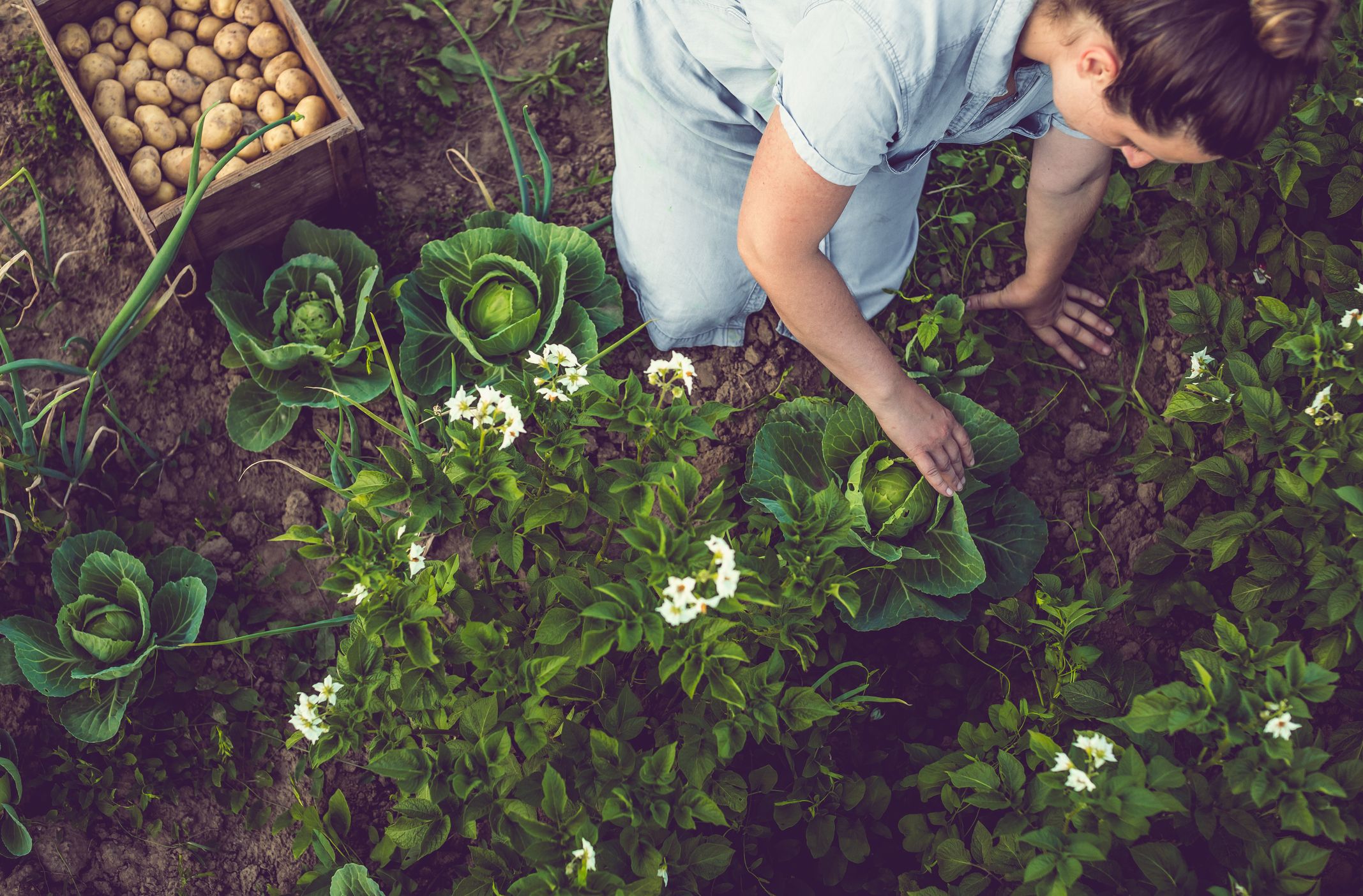In today’s fast-paced lifestyle, many people seek to unwind, de-stress, and become one with nature. One effective method to do so is by practicing mindful gardening. The purpose of this practice is not merely to grow plants but rather to engage in the activity and strengthen one’s mental health while pampering the Garden.
If you are wondering how to begin a mindful garden, you have come to the right website. In this write-up, we will discuss the merits of mindful gardening and guide you through easy methods to set up a serene, productive environment.

What is mindful gardening?
Mindful gardening is the raw art of gardening with full alertness and concentration. It focuses on the sounds, sights, smells, and feelings of the Garden while attempting to neutralize all other possible distractions. Instead of hurrying and completing work, you take your time, enhancing your bond with nature and yourself.
Through consistent mindful gardening practice, anyone can transform mundane handiwork into something meditative and therapeutic.
Advantages of Practice Mindful Gardening
1. Stress Reduction
Gardening in itself is relaxing, but by practicing mindfulness, the practice is enhanced.
Gardening is one of the best ways to focus on tasks, whether planting seeds or watering flowers, and it significantly reduces stress. For many, gardening is a perfect way of relaxing at the end of a long day since it distracts them from their daily worries.
2. Tends to a Range of Mental Health Problems
However, gardening should never be viewed as a distraction but as a way of exercising. Combine exercise with a healthy aura like nature, and you are set to have a great day.
3. Improves Focus
Gardening helps practitioners overcome any focus-oriented tasks and, in turn, shows how much concentration is needed to hold on to a particular idea. You’ll be amazed at how much beauty you missed to notice that didn’t seem relevant to the task at hand.
4. Helps the Individual Understand Nature Better
Gardening is an easy way to spend time outdoors. The more time one spends outside, the better one understands nurturing the environment. That is the beauty of mindful gardening; it changes one’s perspective.
5. Suitable for Users of All Ages
Considering these factors, gardening is easy, and anyone can do it; there is no need for any tools or equipment. All you need is an understanding of what it involves: sowing seeds, watering plants, and waiting with Patience at the end of the day.
How to start a mindful garden?
First and foremost, find a quiet area with no distractions. Establishing somewhere peaceful to get into the right headspace to get started is very important.
It can be outdoors, like a garden or balcony, or indoors, as long as the area includes pots. The most important aspect is having an area you love to be in, surrounded by nature.
2. Plan Your Garden Holistically
Consider the flowers, herbs, and vegetables you would like to plant. Maintaining a garden is an essential aspect of gardening. First, one has to plan which plants, flowers, or herbs they wish to grow, and then planting the seeds can begin.
3. Take Them in the Garden
Use essential, helpful, and relaxing gardening tools. Maintain their tidy and well-organized conditions in deluxe gardening.
4. Get Engrossed Into It
Before getting into the work, first sight your Garden for a minute. Try to soak in every aspect of the greenery surrounding you, hear birds chirp there, or feel how dirt feels in your hand. Engaging in all related activities is an essential principle of mindful gardening.
5. Only Do One Thing
Do not do things at the same time. Do it individually if you aim to plant seeds, water, or prune. Think of your rhythm while moving and how you are connected to nature.
6. Give Thanks/Be Thankful
Devote some minutes to the Garden that you have planted.
Be thankful for the flowers that bloom in your Garden, the nature that surrounds you, and the tranquility that comes with it. Gratitude enriches the window of awareness.
7. Have Patience
Gardening is an art that needs time and dedication. So take your time, and remember you are not simply practicing “mindful gardening” for the results.
Suggestions for Practicing Mindful Gardening
- Don’t Overcomplicate Things: If you are a first-time gardener, start with a few plants. It will make the task more enjoyable and less complicated.
- Set a Schedule: Invest a specific amount of time, daily or weekly, in your Garden. Having a schedule helps you make your practice of mindfulness almost systematic.
- Avoid Harsh Chemicals: Avoid using chemicals and seek to use natural gardening practices. This helps improve the quality of life while promoting sustainability.
- Enjoy the Change: Watch your Garden change through the seasons, and know that these changes show us how beautiful impermanence is.
Making a Change in Life with Mindful Gardening
Mindful gardening is more than just a hobby; it is taking care of your skin. By putting time in your Garden, you are creating a safe place to protect you from all the unwanted noise of daily life.
So what if you don’t have an outdoor area? You can still practice mindful gardening indoors.
Growing herbs on a windowsill or caring for houseplants should be similar to gardening since they involve focusing, gratitude, and contact with nature.
Instances of Mindful Gardening in Real Life
1. A Quiet Flower Garden
Many flower enthusiasts construct mini gardens to sit and relax at noon among beautiful and colorful blooms while doing nothing.
2. A Kitchen Herb Garden
Caring for herbs such as basil, mint, or rosemary is valuable and exciting. These guides make future cooking sessions quite the mindful and interactive experience.
3. Community Gardening
You could apply mindful gardening by joining local community gardening efforts while connecting with new people. This move would result in the sharing of experiences and the allocation of new skills.
Conclusion
Mindful gardening is a great practice, undoubtedly worth trying if you seek peace and purpose. Staying grounded in the present tense and taking care of your Garden explains how you are looking to grow plants, but the reality is that you are tuning up your wellness and happiness levels.
Mindful gardening is easy for almost anyone to learn, whether they have a big backyard or a few pots on their balcony. Please do it now and witness how this effortless practice improves their Garden and life over the years.
Now, take a few steps forward into your Garden, take a deep breath, and allow yourself to indulge in mindful gardening.


